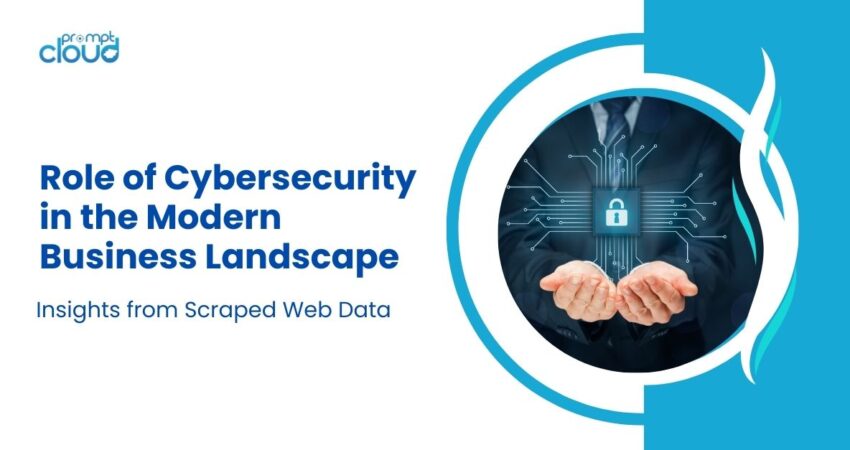
In today’s rapidly evolving digital world, cybersecurity has become more than just a technical necessity—it’s a cornerstone of modern business strategy. As businesses increasingly rely on online platforms to operate, the threat landscape is growing more complex. From data breaches to cyberattacks, the risks can jeopardize not only financial health but also reputations and customer trust.
In this blog post, we’ll dive into the eight key roles cybersecurity plays in ensuring business continuity, safeguarding sensitive information, and enabling companies to thrive in an interconnected environment.
Whether you’re a small startup or a global enterprise, understanding the importance of robust cybersecurity practices is essential to staying ahead in the competitive market. Let’s get started.
Protecting Sensitive Data from Cyber Threats
One of the most vital roles of cybersecurity in modern business is protecting sensitive data. Whether it’s customer information, financial records, or proprietary business strategies, data is the backbone of any organization. Cybercriminals are constantly developing new tactics to breach systems and steal valuable data. Data breaches not only result in significant financial losses but can also harm a business’s reputation and trust with customers.
Robust cybersecurity measures, such as encryption, firewalls, and multi-factor authentication, ensure that sensitive data remains secure from unauthorized access. By proactively safeguarding this data, businesses can maintain the integrity of their operations and foster customer trust in their digital presence.
Mitigating Financial Loss and Operational Risks
Cybersecurity directly impacts a company’s bottom line by reducing the financial risks associated with cybercrime. The cost of a data breach, financial fraud, or ransomware attack can quickly add up, from the immediate financial losses to the long-term expenses involved in recovery efforts. Businesses also face operational risks, such as the compromise of intellectual property or the disruption of key services.
By investing in robust cybersecurity solutions, companies can avoid the high costs associated with cybercrime and maintain the stability of their operations. For instance, you can engage managed cybersecurity services to proactively monitor and secure your systems, reducing the potential for costly breaches and fraud. The experts will implement real-time threat detection, perform regular system audits, and ensure that all vulnerabilities are identified and addressed before they can be exploited.
Ensuring Business Continuity and Minimizing Downtime
In the digital age, downtime can be costly. Cyberattacks like ransomware and denial-of-service (DoS) attacks can disrupt business operations, causing severe financial setbacks. A well-implemented cybersecurity strategy ensures that systems are constantly monitored for vulnerabilities and threats. With the right measures in place, businesses can detect potential attacks before they cause significant damage and mitigate the impact of any interruptions.
This enhances business continuity, allowing operations to continue smoothly even in the face of threats. Regular backups, disaster recovery plans, and effective threat detection systems are key to minimizing the risks of downtime and ensuring that the business stays operational.
Safeguarding Customer Trust and Brand Reputation
In an interconnected world, the relationship between a company and its customers is built on trust. A single data breach or cyberattack can quickly erode this trust and damage the brand’s reputation. Customers are more likely to take their business elsewhere if they believe their data is not safe with you.
A strong cybersecurity framework not only protects customer data but also serves as a commitment to safeguarding their privacy. Businesses that invest in secure systems demonstrate a dedication to providing a safe and reliable service, which ultimately strengthens customer loyalty and enhances brand reputation.
Compliance with Industry Regulations and Standards
In addition to safeguarding sensitive data, businesses must ensure that they comply with industry regulations and standards. Regulations such as the GDPR, HIPAA, and PCI-DSS set stringent requirements on how businesses handle personal and financial data. Failing to comply with these regulations can result in hefty fines, legal action, and reputational damage.
Cybersecurity plays a critical role in helping businesses adhere to these standards by securing data, preventing unauthorized access, and implementing proper data-handling procedures. Regular audits, data encryption, and secure data storage practices are essential for meeting compliance standards and avoiding penalties for non-compliance.
Enabling Safe and Secure Remote Work Environments
The rise of remote work has introduced new cybersecurity challenges for businesses. Employees accessing company systems and sensitive data from various locations or unsecured networks increase the risk of cyberattacks. To combat this, cybersecurity solutions must extend beyond the office to protect remote workers.
This includes implementing secure virtual private networks (VPNs), ensuring endpoint protection on employees’ devices, and regularly updating software. A strong cybersecurity framework allows businesses to embrace the flexibility of remote work without compromising on security, ensuring that employees can collaborate safely and securely no matter where they are located.
Preventing Intellectual Property Theft
Intellectual property (IP) is often a company’s most valuable asset, yet it is also a prime target for cybercriminals. Whether it’s proprietary software, research and development designs, or marketing strategies, businesses must protect their IP from theft or unauthorized access. Cybersecurity measures such as secure servers, encryption, and access control mechanisms prevent unauthorized personnel from accessing sensitive IP.
By creating a culture of cybersecurity awareness and implementing strong security protocols, businesses can reduce the risk of IP theft and ensure that their innovations remain protected from competitors and cybercriminals alike.
Defending Against Evolving Cyber Threats
The cybersecurity landscape is constantly evolving as cybercriminals develop new methods to exploit vulnerabilities in digital systems. Businesses must stay ahead of these emerging threats to avoid falling victim to attacks. This requires continuous monitoring, frequent security updates, and a proactive approach to identifying and addressing new risks.
Cybersecurity teams must stay informed about the latest threats and deploy the right tools to protect against them. Regular employee training and awareness campaigns are also essential to reducing human error, which is often the weakest link in a cybersecurity strategy. By staying vigilant and adapting to new threats, businesses can effectively defend themselves in an increasingly hostile digital environment.
Cybersecurity is an essential pillar in the modern business landscape, safeguarding not just data but also the reputation, financial stability, and continuity of operations. As threats evolve, businesses must invest in robust security measures to mitigate risks and ensure long-term success. By embracing comprehensive cybersecurity strategies, such as engaging managed services and staying proactive in defense efforts, organizations can confidently navigate the digital world while minimizing vulnerabilities. Prioritizing cybersecurity is no longer optional—it’s a critical investment for protecting both the present and future of the business in an increasingly interconnected and risk-laden environment.




















